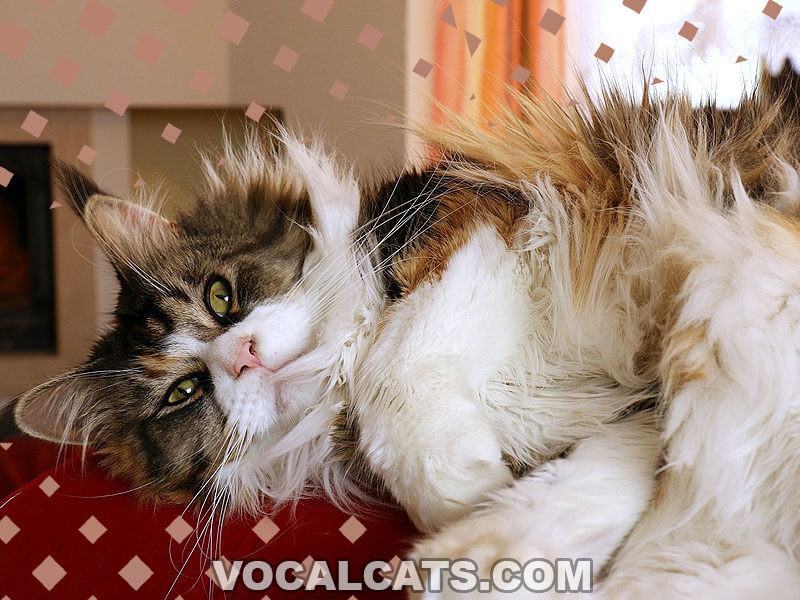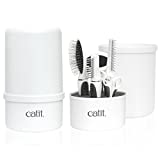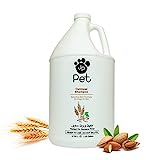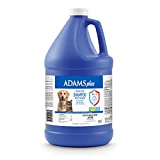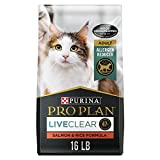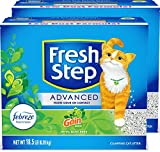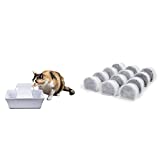Do Maine Coon Cats Shed? Yes, Maine Coons Shed their coats moderately but it gets heavier during spring and autumn. How heavy a Maine Coon Shed depends on several factors. Aside from medical conditions like endocrine disorders, the other reasons why Maine Coon Sheds are poor diet, sunlight exposure, and lack of grooming, among others.
A lot of cat owners are drawn not only to the warm personality of Maine Coons but also to their good looks. However, many shoo away from Maine Coons thinking that this cat Sheds like crazy. But, is Shedding really that bad?
Yes, these gentle giants Shed but that’s not enough reason to get discouraged. While Maine Coons are not hypoallergenic, they do shed, but not as much as other cat breeds. Shedding is a natural process that gets rid of dead hair. In this article, we’d share with you the different factors that contribute to the Shedding of Maine Coons and when Shedding is a cause for alarm.
Contents
- Does Maine Coon Shed?
- Maine Coon Shedding pattern explained
- Maine Coon fur distinctive features
- Why Do Cats Shed Hair?
- Do Maine Coon Cats cause allergies?
- Do Maine Coons Shed more than other Cats?
- Do Maine Coons Shed bad?
- How much Do Maine Coon Cats Shed?
- Maine Coon Cat Shedding: Indoor vs Outdoor
- When Do Maine Coons Shed?
- Maine Coon Shedding season
- Maine Coon Shedding level
- So, Why is my Maine Coon Shedding so much?
- Other factors that affect a Maine Coon Cat’s Shedding
- How to know if cat food is ruining your Maine Coon’s coat
- So, Do Maine Coon Cats Shed A Lot?
- How to reduce Hair Shedding in your Maine Coon Cat: 10 Helpful Ways
- What are some Cats that Don’t Shed bad?
- Final thoughts
- Related Questions
Does Maine Coon Shed?
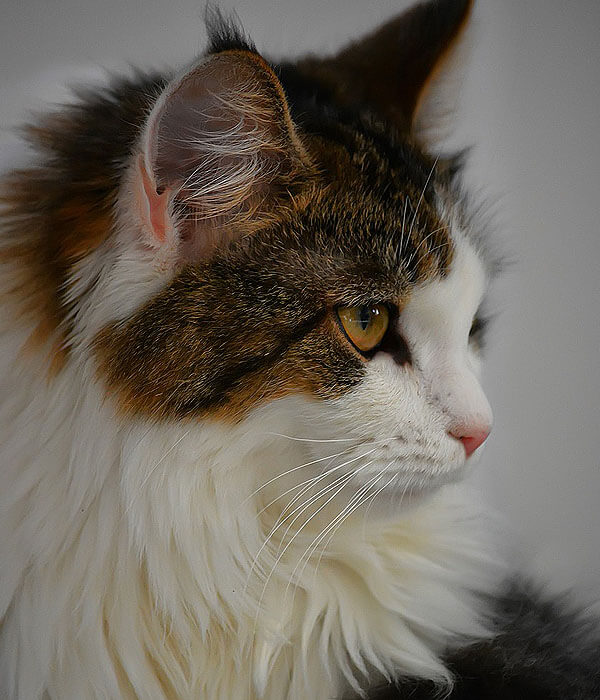
Yes, Maine Coons do shed. You may be asking why ‘my cat Sheds like crazy’ and whether this is a natural process or not. Well, no worries because Maine Coon cat hair Shedding is indeed a natural process.
In fact, Shedding is good for your fur baby. It’s because Shedding removes dead fur to release the skin’s natural oil. As a result, it makes the skin softer and the coat shinier. Shedding also gives way to a new and healthier growth of fur.
A Maine Coon’s fur continues to go through the four (4) phases of the growth cycle. It starts with the growth of new fur followed by a resting period and then Shedding.
Maine Coon Shedding pattern explained
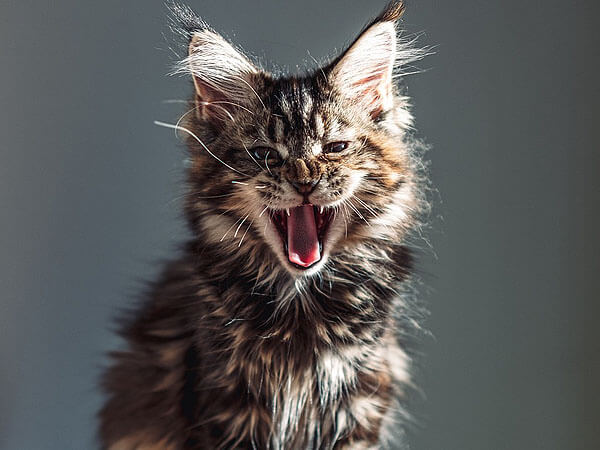
Why my cat is Shedding like crazy? Is my cat’s origin have something to do with Shedding? To find out, let’s talk about your cat’s history and what led to the development of his thick and double-coated long coat.
Brief history of Maine Coon
There are many stories surrounding the origin of Maine Coons. Among them, it is the story that Maine Coons are descendants of the Norwegian Forest cats that is the most believable.
RECOMMENDED: Maine Coon Norwegian Forest Cat (Complete Guide)
In the 1800s, the European settlers traveled with their Norwegian Forest cats to Maine, a state in the New England northeastern region of the USA. At that time, Maine was commonplace for ship repairs as well as to anchor ships.
Many of the sea-faring families settled in Maine along with their long-haired cats like the Norwegian Forests who are believed to have mated with the local feral cats. This eventually led to the development of the Maine Coons.
The state of Maine is known for its harsh and long winter months, so it’s natural for cats to adapt for survival. This physical adaptations led to the thick and water-resistant coat.
Moreover, Maine Coons also have a double layer of coat, with the inner layer acting as an insulator while the outer layer is a protectant from water and snow. These layers go through the natural process of Shedding or the phases of fur growth.
DON’T MISS: Do Maine Coons Like Water?
The phases of fur growth
Shedding is a healthy and normal part of hair growth which has four (4) phases. It is necessary for changing the thickness of the coat in response to environmental factors – fluffy in winter and thinner in winter.
- Anagen is the period of active growth
- Catagen is the period when the fur stops growing
- Telogen is the rest period
- Exogen is when the fur Sheds
The pattern of shedding
There is a difference in the pattern of Shedding between an indoor and an outdoor Maine Coon. This is because Shedding is connected to sunlight exposure, referred to as photoperiod.
Indoor Maine Coons do not normally Shed as heavy compared to outdoor Maine Coons that are exposed to strong sunlight. But for some indoor Maine Coons, that is not the case.
Constant exposure of indoor Maine Coons to air conditioning systems and artificial light confuses their internal clocks. In effect, this leads to all-year-round Shedding with some of them even Shedding heavier during spring and autumn.
Maine Coon fur distinctive features
The Maine Coon has 2 layers of coat. The shorter and dense undercoat acts as insulation during cold days.
On the one hand, the outer layer of the coat is oily and semi-water resistant. This helps Maine Coons stay dry during winter and when the ice begins to melt.
Why Do Cats Shed Hair?
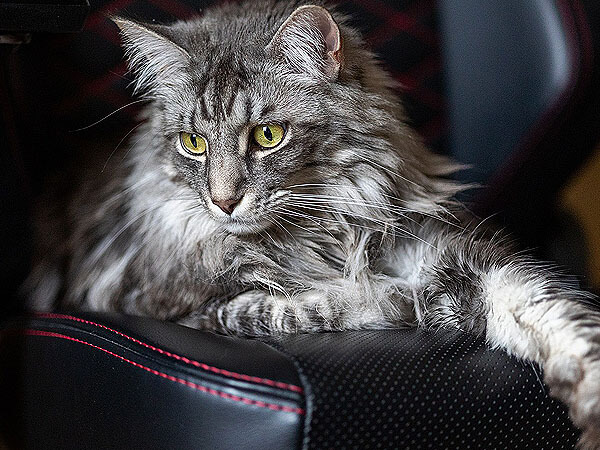
The two (2) main reasons why cats Shed their hair and these are:
1. Seasonal Changes
Cats Shed during the changing of the season. The onset of spring triggers them to Shed their thick winter coat. This is to keep them cooler during the hot and humid days ahead.
At the onset of autumn, cats will Shed again their thinner coats to prepare for the growth of thicker coats for the cold days ahead.
2. Lack of Grooming
Sometimes, lack of grooming is the cause of Shedding. While Maine Coons spend hours grooming themselves, it doesn’t mean they do not need a helping hand. Owners need to often brush their Maine Coons to remove dead fur and to control Shedding.
Do Maine Coon Cats cause allergies?
Aside from being fastidious groomers, one more thing that’s unique about all cat breeds is the Fel d1 protein which causes allergic reactions. This protein is secreted in their saliva, anal and sebaceous glands, and fur.
Along with the Fel d1 protein, other proteins also cause allergic reactions in humans. All of these allergy-producing proteins dry up and accumulate on the fur of Maine Coons and become allergens that are released in the environment through Shedding.
To control the amount of allergens in your home, it’s an awesome idea to invest in an air purifier with a HEPA filter.
Do Maine Coons Shed more than other Cats?
No, Maine Coons Shedding is not more than other breeds. Maine Coons have a thick coat and this is why they give the impression that Maine Coon cats Shed more compared to other cat breeds.
Plus, they are bigger than the others so they have more fur to Shed.
You may be interested in: Do Ragdoll Cats Shed? 7 Ways To Shed Less!
Do Maine Coons Shed bad?
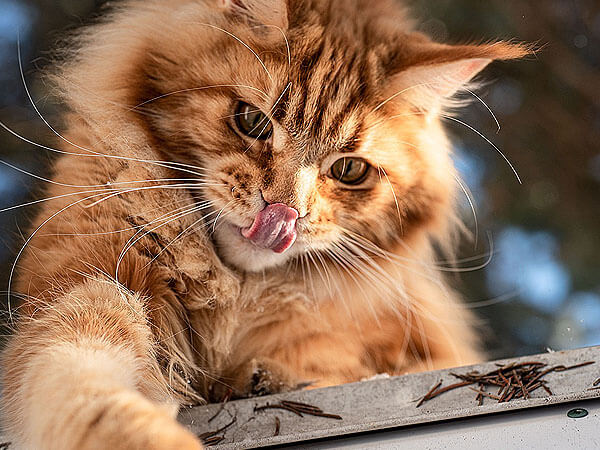
Main Coon Shedding is more pronounced twice a year, at the start of spring and autumn. Plus, pregnancy and lactation can cause Maine Coons to Shed badly.
Hormonal changes and depleted amounts of nutrients exacerbate Shedding as well.
How much Do Maine Coon Cats Shed?
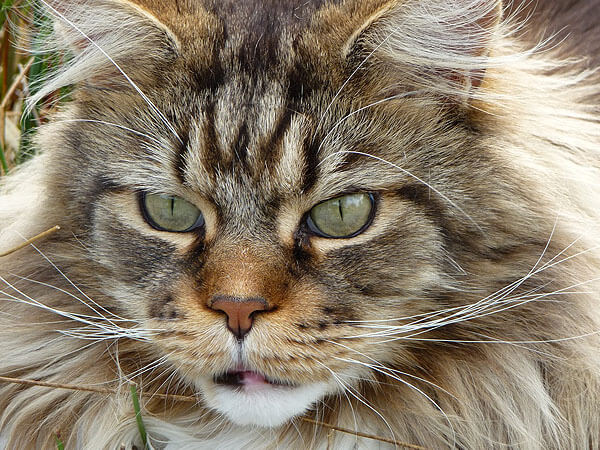
Each cat is different. Some Maine Coons will Shed more than others. One factor that affects the amount of Maine Coon cat Shed level is the genetics of the parents.
Plus, some of them will Shed more because they live in a warmer country. Then, there are other issues affecting the amount of Shedding such as nutrition, health, and anxiety which we will discuss in just a bit.
Maine Coon Cat Shedding: Indoor vs Outdoor
Outdoor Maine Coons moderately Shed their coats every day. They only go through the process of large-scale Shedding twice a year which is influenced by sunlight or photoperiod.
Photoperiod is the length of time a Maine Coon is exposed to sunlight in a day. Thus, outdoor Maine Coons Shed heavily during spring when the days start to lengthen and in autumn when the days are shorter.
Do Maine Coons Shed in the Wintertime?
No, they have to hold on to their thick fur to keep them warm.
On the other hand, indoor cats tend to Shed almost all year long. But, the amount of Shedding is not large-scale and it is mainly influenced by household cooling and heating systems.
When Do Maine Coons Shed?
In the case of Maine Coons, Shedding does not happen until they are about 3 months of age and up to 1 year for some.
Maine Coon Shedding season
There are 2 Shedding seasons of Maine Coons. These are during spring and autumn.
Maine Coon Shedding level
Below is a table showing the different levels of Shedding for both indoor and outdoor Maine Coons.
| Spring | Summer | Fall/Autumn | Winter | |
| Indoor Maine Coon | Moderate | Moderate | Moderate | Moderate |
| Outdoor Maine Coon | Heavy | Moderate | Heavy | Light |
So, Why is my Maine Coon Shedding so much?
To discover why your cat is Shedding like crazy, the next section will tackle the other causes of heavy Shedding.
Other factors that affect a Maine Coon Cat’s Shedding
Maine Coons are pretty good at keeping their fur clean by licking themselves, just like most cats are. Their tongues have tiny, pointed cones that serve as a dirt trap and aid in the distribution of sebum or oil throughout their coats.
RECOMMENDED: How To Clean A Cat Tree (10 Easy Steps)
However, there may come a moment when they over-groom themselves to the point that they resemble a bald Maine Coon with bald patches.
These additional reasons, in addition to seasonal variations and poor care, could be the cause of your Maine Coon’s excessive hair loss:
Allergies
One explanation to the question, Do Maine Coons Shed A Lot or excessively, is that they may be allergic to certain types of food. Your Maine Coon may not be used to some carbohydrates or some types of meat or protein like beef, dairy products, or gluten. Food preservatives and coloring found in some products also cause allergic reactions to some cats.
You may also like: Can Cats Eat Sardines? (Canned, Raw, Dried, Oil)
Parasites
Ticks and fleas, as well as intestinal worms, can affect the proper absorption of nutrients and can cause skin itchiness and eventual hair loss.
DON’T MISS: What Do Cat Fleas Look Like To The Human Eye? With Pictures!
Stress and Anxiety
Stress can cause your Maine Coon to Shed excessively. A change in living conditions or the introduction of new pets in your house are just some types of stress that they may experience.
Poor nutrition
The best diet for the health of your Maine Coon is one that has 30 – 50% protein and around 20% fat. A less healthy coat can result from eating too many carbohydrates and not enough protein.
Genetics
Some Maine Coons may have congenital alopecia which usually starts when they are just kittens. The condition does not cause itchy skin.
Old age
As a Maine Coon gets older, their coat becomes thinner and less pliable causing it to Shed more. They also tend to groom themselves less, contributing to more matting of the coat.
Disease or Health Problems
Kidney and liver disease, thyroid issues, or adrenal problems can cause excessive Shedding. Organs that are not functioning well will eventually affect the state of their skin and hair resulting in hair loss.
Fungal Infection
Ringworm can cause circular, thickened areas of skin with hair loss. The infected area may also be scaly and inflamed resulting in excessive scratching and grooming.
Medication side effects
The cause of your Maine Coon’s excessive Shedding may be a reaction to a certain drug or medicine.
Pregnancy
Calcium and other mineral depletion can cause hair loss in pregnant cats. Their body’s nutrients are being redirected to the development of the fetus during gestation.
How to know if cat food is ruining your Maine Coon’s coat
Among the many factors affecting the health of your Maine Coon’s coat is the right food they are eating. Some cat foods just don’t cut it when it comes to providing the necessary nutrients your Maine Coon needs.
Below are some things to consider when choosing the right food for your Maine Coon:
1. Is the protein in the cat food of high quality?
Cats require around 30 to 50% protein in their diet. But, unfortunately, not all the protein present in a cat’s food are created equal.
Most dry cat foods source their protein from plants while others use animal derivatives from chicken or bone meal.
Wet foods are usually the better choice since most contain a grain-free and high protein content.
DON’T MISS: Can Cats Eat Chicken Bones?
2. Check for fillers in the ingredients.
Felines are naturally meat eaters and they get their energy and nutrients mostly from protein. Some cat foods purport to contain additional health benefits by incorporating vegetables in their product, like soya, rice, corn, or peas.
While these ingredients do contain nutrients, they are not truly nutritive to most felines.
CHECK OUT: Can Cats Drink Soy Milk?
3. Is your Maine Coon allergic to the food?
Products that contain preservatives, artificial colors, or taste enhancers may trigger an allergic reaction to your Maine Coon.
If you notice signs of diarrhea, hyperventilation, vomiting, reddish skin and eyes, and, poor appetite, your Maine Coon may be allergic to the food you are feeding it.
So, Do Maine Coon Cats Shed A Lot?
A Maine Coon Shedding A Lot is caused by several factors and not inherently due to having a thick coat. Maine Coon Cats Shed A Lot mainly due to seasonal or temperature changes which is a natural process most cat breeds go through to adapt to their environment.
Other reasons why a Maine Coon Shed A Lot are due to stress or an underlying disease. Maine Coons are generally moderate shedders and each individual would shed according to the state of their health and well-being.
How to reduce Hair Shedding in your Maine Coon Cat: 10 Helpful Ways
Maine Coons will always Shed their hair no matter what. But, there are ways you can reduce the amount of hair that could overpower your home.
1. Brush regularly
Brushing your Maine Coon 2 to 3 times weekly will help reduce matting and distribute the natural oils that would keep their hair shiny and healthy.
When brushing, use a metallic comb first in the direction of the hair growth to straighten the hairs and remove any tangling. Then use a soft bristle brush or slicker brush that would remove the dead hairs in their undercoat.
2. Bathe them once a month
Because of their long fur, dirt, and debris can easily get trapped in your Maine Coon’s hair. Bathing them every month or so will keep their coats clean and also help in removing excess dead hairs.
Choose a high-quality shampoo preferably with natural ingredients like tea tree oil, oats, or aloe vera that would additionally soothe dry skin.
3. Cool your home
Keeping the temperature around your house cool will minimize the amount of shedding. Warm temperatures typically trigger shedding since their bodies would try to adjust to the heat by losing hair.
4. Control flea or parasite infection
Flea and tick bites often lead to excessive scratching that can lead to a skin infection. Some products can be administered every 1 to 3 months that contain insect growth regulators (IGR) that can effectively prevent flea larvae from maturing.
Cleaning the area where your Maine Coon usually stays or sleep will keep fleas and ticks from spreading.
DON’T MISS: Why Does My Cat Sleep On My Head, Face and Neck? 10 Reasons Why!
You can also bathe your feline friends with a shampoo formulated to combats adult fleas, flea eggs, lice, and ticks.
DON’T MISS: Why Does My Cat Sleep On My Pillow? 13 Reasons Why!
5. Provide a well-balanced diet
Providing the right nutrition for your Maine Coon is the number one remedy for keeping their coat healthy and strong. They get most of their nutrients from meat and meat organs and not from a plant-based diet.
Listed below are some of the micronutrients that can be beneficial to improve the strength of their coat.
| Micronutrient | Benefits | Meat Source |
| Collagen | Strengthens bones, promotes elasticity of skin and hair growth | Poultry, Fish, Bone broth |
| Omega-3 Fatty Acid | Promotes stronger hair follicles and prevents dry skin | Tuna, salmon, Mackerel, Sardines |
| Keratin | Promotes hair growth | Fish, Poultry, Dark Meat |
| Taurine | Supports a healthy immune system | Poultry, Tune, Liver |
| Vitamin E | Eases inflammation caused by itchy skin | Salmon, Trout, Prawns, Fish oil |
| Biotin | Helps in the synthesis of keratin for healthy hair production | Fish, Meat, Organ Meat |
6. Check for allergies
Watch out for any allergic triggers from certain foods, as well as, pollen, dust mites, and mold spores.
7. Practice proper hygiene
Keep their food and water bowls clean and their drinking water fresh at all times. Avoid dust mites and other allergens by regularly vacuuming your home and keeping the floors and the cat litter germ-free.
8. Avoid stress
A stressed Maine Coon may cause them to over-groom themselves which results in patchy skin and sores. Causes of stress include any changes in their daily routine, the arrival of other cats or pets in your home, uncleaned litter trays, and even being excessively stroked or fussed over.
DID YOU KNOW…? Scratching the litter box excessively is one of the ways our cats let us know they are feeling anxious, stress, or distraught.
9. Regular vet checkups
Your veterinarian should examine your Maine Coon at least once a year to make sure they are healthy. Diseases that may normally harm their coat’s health can be quickly identified and treated.
10. Keep them hydrated
Ensure that clean water is always placed in their water bowls. Their skin becomes dry from dehydration, which finally triggers molting or Shedding.
What are some Cats that Don’t Shed bad?
The cat breeds that do not Shed much are, of course, the hairless cat breed such as the Sphynx and its mixes, like the Bambino or the Peterbald.
Cat breeds such as the Siamese, Bengal, Cornish Res, and Tonkinese also Shed less noticeable because of their short hairs although they are still not considered hypoallergenic.
CHECK OUT: Maine Coon Siamese Mix (Complete Guide)
The Turkish Angora is another breed that doesn’t Shed that badly because their single coat does not mat so easily.
Final thoughts
Shedding is a natural and necessary process in cats that allows dead hair removal and the natural oils in the skin to be released. Knowing how to manage your Maine Coon’s grooming needs and the reasons for the occasional heavy shedding they undergo will help you minimize the amount of cat fur in your home.
Related Questions
Yes, Maine Coons do well as indoor cats because they are very adaptable and have a laid-back personality. However, there are some cons you should be aware of if you plan to keep them indoors always. Their environment should be regularly cleaned, especially their litter boxes. And, they should be exercised and mentally stimulated at least 20 to 30 minutes a day to keep them healthy and prevent obesity.
While a male cat may Shed more than a female would, the reasons for excessive Shedding are similar regardless of gender. It could be caused by an allergy or a skin disease. Stress and a poor diet are also major contributors.
DISCLAIMER: THIS WEBSITE DOES NOT PROVIDE MEDICAL ADVICE
The information, including but not limited to, text, graphics, images and other material contained on this website are for informational purposes only. No material on this site is intended to be a substitute for professional veterinary advice, diagnosis, or treatment. Always seek the advice of your veterinarian or other qualified health care provider with any questions you may have regarding a medical condition.
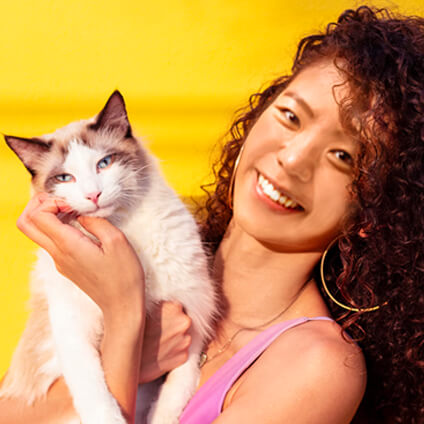
With over five years of specialized experience as an animal writer, my expertise lies in cat nutrition, health, behavior, grooming, and training. I am dedicated to delivering helpful and informative content that caters to the well-being of our feline friends. My primary goal is to empower pet owners with knowledge and ensure our feline companions thrive in health and happiness. In my free time, I love volunteering at local cat rescue centers.
